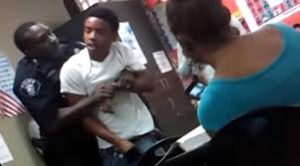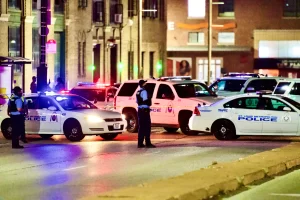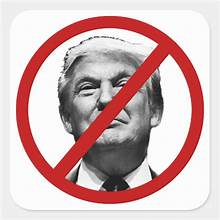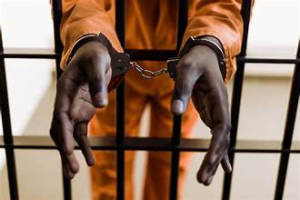Published St. Louis American, January 19, 2017
 School fights are nothing new, they’ve been around as long as there have been kids. This writer was suspended once for fighting. I’ve always resented the fact that there was no attempt to look at mitigating circumstances – that I was an honor student, that I had no previous incidents, that I acted in self-defense. Two students fighting? Automatic suspensions for both students. End of story.
School fights are nothing new, they’ve been around as long as there have been kids. This writer was suspended once for fighting. I’ve always resented the fact that there was no attempt to look at mitigating circumstances – that I was an honor student, that I had no previous incidents, that I acted in self-defense. Two students fighting? Automatic suspensions for both students. End of story.
At the pre-school level, even little ones are bound to tangle. They are territorial and impulsive. These are not criminal acts; they are part of child development. They are teachable moments that allow adults to show how conflicts can be resolved fairly and non-violently.
Recently, four local school districts decided to ban the suspension of preschoolers and primary grades. It’s mind-blowing that school officials had to be forced to change this policy. St. Louis Public Schools, Maplewood-Richmond Heights, Normandy and Ladue all reached a point of enlightenment, thanks to community pressure by groups working to end the school-to-prison pipeline.
A 2015 study by the UCLA Center for Civil Rights Remedies put Missouri at the top of the heap for its disproportionate rate of suspensions between black and white students. This is happening at all levels – elementary, middle and high school. In true Show Me No Shame Missouri, instead of addressing this critical disparity, the state goes a step farther and criminalizes student fights.
We live in a violent society. Discipline in schools, especially in high schools, has been mirroring the broader society for the last several years. Many offenses that should be dealt with as juvenile code violations are now viewed as adult crimes. Add actual police officers to the equation to enforce school codes and arrest students, you have another effective tool to keep the prisons full.
Now is the time for parents, teachers, civic leaders and concerned citizens to put pressure on local school boards and principals as to how state law on criminal assaults should be interpreted. It can’t stop there.
Schools must come up with creative and humane ways to deal with classroom discipline. Currently, teachers are bearing the burden for dealing with students, and many have psychological issues. Teacher performance reviews are being impacted by their inability to simultaneously be teachers, counselors, therapists and law enforcers. It’s not surprising (but unacceptable) that we hear teachers calling for stricter discipline measures and supporting suspensions to quickly rid themselves of problem students.
The American Academy of Pediatrics has long condemned suspensions and expulsions that are key part of most districts so-called zero tolerance policy. It affirms that students who are put out of school are 10 times more likely to drop out of school. It also points out that not getting to the root of the problem may be putting the child back into an environment that may be resulting in misbehavior.
The academy recommends a more pro-active approach, and that is screenings at the early childhood stage for high-risk behaviors. Suspensions may be quick fixes but they are temporary, ineffective and can cause long-term problems for a child, the family and our community.
Trauma – sexual, physical and psychological – is a real factor in the lives of impoverished families. We need welcoming and prepared schools to deal with the contemporary issues that impact the learning of our children. A social worker at each school is a legitimate demand.
Our children are worthy of getting all that they need to reach their full potential as human beings. It’s up to empowered and committed adults to be the champions of children and the institutions that serve them



